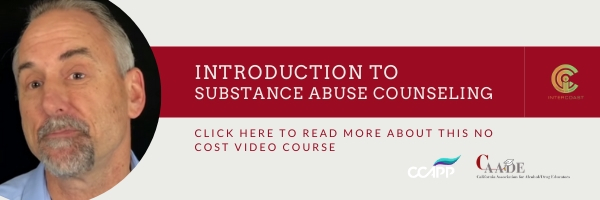Estimated reading time: 5 minutes
Navigational Guide for Easy Reference
Being an addictions counselor is no easy feat, but it’s a rewarding job that will put you face-to-face with people who really need and value your help.
You’ll be able to see the outcome of your hard work right in the faces and lives of your clients. You’ll watch people transform into blossoming members of their community under your guidance. You will change lives.
While it may not be glamorous and the job may sometimes be thankless, being an addictions counselor is incredibly worthwhile. But what does it look like day-to-day?
Flexibility is Key
The job of an addictions counselor is an ever-changing one. While there are definite day-to-day similarities, some things can be unexpected, and it will be your job to be prepared for those surprises.
Oftentimes new science and education on how to properly treat people with addictions become available. This shifts the role of the counselor in different spaces.
Different people have different needs, and you will be helping to identify and cater to those needs to better help your particular clients. This means that some days will look incredibly different from others.
Inpatient Work
For a counselor who works in an inpatient setting, work can entail long hours. Generally, there’s someone on staff around the clock, in case of emergencies.
Counselors in the inpatient or residential zone are going to be working with a number of patients at a time. They will be assisting them with their recovery and helping them to gain future life skills. Sometimes these patients are mentally ill, homeless, or formerly incarcerated, some may even have warrants out for their arrest.
Counselors focus on a group of about ten patients in both one-on-one and group counseling sessions. Assessments will need to be made about each of these patients and their specific needs, as well as how those needs fit within the scheme of the group and the program at large.
The counselor will work with clients, their families, and loved ones to help establish a steady and secure life for “after”.
Outpatient Work
Outpatient counselors typically have a 9 am to 5 pm schedule. Their work rotates around the assessment, diagnosis, treatment, care coordination, advocacy, and eventually discharge of their client.
Treatment is client-focused and should ultimately lead the client towards independence.
Sometimes the counselor will have one-on-one meetings. These meetings will focus on the client’s specific strengths and weaknesses. They can focus on personal steps that they need to take to work on their recovery. Other times, group therapy can be more beneficial.
It is also often the counselor’s job to collaborate with other team members to refer the client to other services that could better suit their specific needs.
Clients are often people who used to be in the inpatient program and are now working towards independence. They may also be referred by the criminal justice system or a social worker.
Preparing for After
Regardless of which environment a counselor finds themselves working in, the end goal for most clients is independence. The relapse rate for substance abuse disorders is between 40% and 60%, and you want to make sure that you set your client up for success, in order to avoid that.
Part of the job of an addictions counselor is preparing their clients for what comes after their journey through inpatient or outpatient care is complete. The counselor may help navigate insurance programs, or government assistance programs that would help the client readjust their situation to be more optimal.
Later, as the client nears the end of their treatment, the counselor may advise them on where to find job training or placement. They may help with the hopeful rebuilding of personal relationships and may advise them and their loved ones on how to transition back into the “normal” working and social routine while keeping their condition in mind.
Remembering the Human
A counselor has to be empathetic and compassionate to succeed in this position. Addictions counseling is deeply personal, and the client that they’re treating is a human first and foremost. Treatment must address the needs of the entire person to be successful, both within the treatment center and after they leave it.
The client has to feel comfortable, and like they’re being listened to and understood throughout their recovery process. This means that it’s crucial to be able to see past the “client” and see into the “human”, which can be tough in such a difficult job. The rewards that come from successfully treating a client are worth the difficulty though.
Clients need individualized treatment, and won’t all react well to the same routine. When the counselor has become comfortable with a client it will become easier to establish a clear daily or weekly routine with them to promote their recovery.
Is Being an Addictions Counselor For You?
The career can be thankless, but substance abuse counseling careers can be worthwhile and rewarding. Helping people rebuild their lives and recover is life-changing, both for the counselor and the client.
While the days can be long and strenuous, an addictions counselor is facilitating someone’s recovery and the complete improvement of their life. If that sounds like a fulfilling life path despite the long hours and stressful workload, this career could still be for you.
It requires a lot of empathy, a lot of training, and a lot of tenacity. At the end of the day, you’re helping people be better.
For more information on becoming an addictions counselor, or for other career training, visit our site. We have programs for multiple fulfilling fields to help get you into the workforce and into a career that you love.


